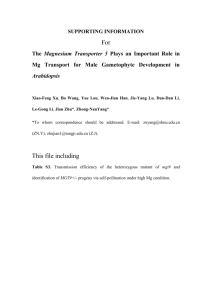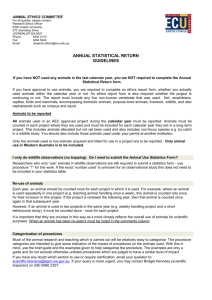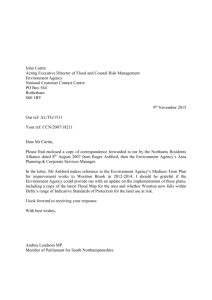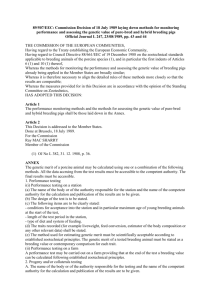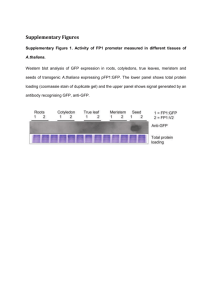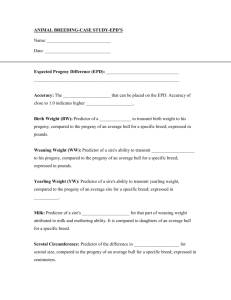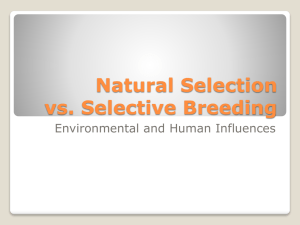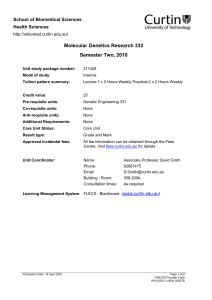Animals Held - Research @ Curtin
advertisement
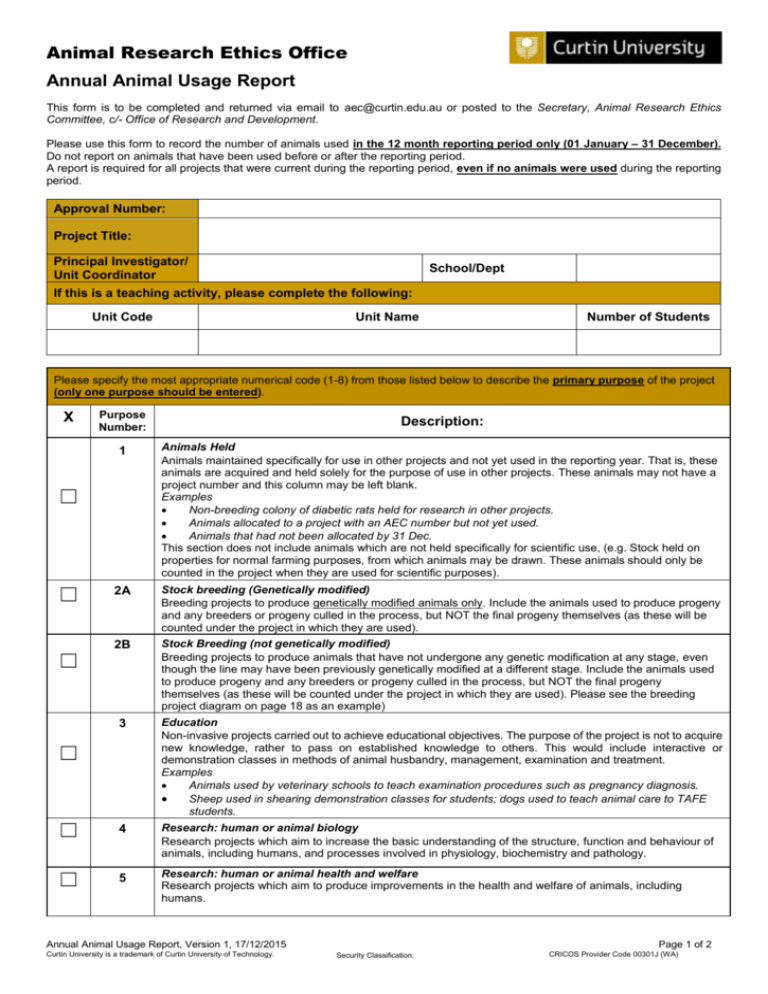
Animal Research Ethics Office Annual Animal Usage Report This form is to be completed and returned via email to aec@curtin.edu.au or posted to the Secretary, Animal Research Ethics Committee, c/- Office of Research and Development. Please use this form to record the number of animals used in the 12 month reporting period only (01 January – 31 December). Do not report on animals that have been used before or after the reporting period. A report is required for all projects that were current during the reporting period, even if no animals were used during the reporting period. Approval Number: Project Title: Principal Investigator/ Unit Coordinator School/Dept If this is a teaching activity, please complete the following: Unit Code Unit Name Number of Students Please specify the most appropriate numerical code (1-8) from those listed below to describe the primary purpose of the project (only one purpose should be entered). X Purpose Number: 1 Animals Held Animals maintained specifically for use in other projects and not yet used in the reporting year. That is, these animals are acquired and held solely for the purpose of use in other projects. These animals may not have a project number and this column may be left blank. Examples Non-breeding colony of diabetic rats held for research in other projects. Animals allocated to a project with an AEC number but not yet used. Animals that had not been allocated by 31 Dec. This section does not include animals which are not held specifically for scientific use, (e.g. Stock held on properties for normal farming purposes, from which animals may be drawn. These animals should only be counted in the project when they are used for scientific purposes). 2A Stock breeding (Genetically modified) Breeding projects to produce genetically modified animals only. Include the animals used to produce progeny and any breeders or progeny culled in the process, but NOT the final progeny themselves (as these will be counted under the project in which they are used). 2B Stock Breeding (not genetically modified) Breeding projects to produce animals that have not undergone any genetic modification at any stage, even though the line may have been previously genetically modified at a different stage. Include the animals used to produce progeny and any breeders or progeny culled in the process, but NOT the final progeny themselves (as these will be counted under the project in which they are used). Please see the breeding project diagram on page 18 as an example) ☐ ☐ Description: ☐ 3 Education Non-invasive projects carried out to achieve educational objectives. The purpose of the project is not to acquire new knowledge, rather to pass on established knowledge to others. This would include interactive or demonstration classes in methods of animal husbandry, management, examination and treatment. Examples Animals used by veterinary schools to teach examination procedures such as pregnancy diagnosis. Sheep used in shearing demonstration classes for students; dogs used to teach animal care to TAFE students. ☐ 4 Research: human or animal biology Research projects which aim to increase the basic understanding of the structure, function and behaviour of animals, including humans, and processes involved in physiology, biochemistry and pathology. ☐ 5 Research: human or animal health and welfare Research projects which aim to produce improvements in the health and welfare of animals, including humans. ☐ Annual Animal Usage Report, Version 1, 17/12/2015 Curtin University is a trademark of Curtin University of Technology. Page 1 of 2 Security Classification: CRICOS Provider Code 00301J (WA) Please specify the most appropriate numerical code (1-8) from those listed below to describe the primary purpose of the project (only one purpose should be entered). X Purpose Number: ☐ 6 ☐ ☐ 7 8 Description: Research: animal management or production Research projects which aim to produce improvements in domestic or captive animal management or production. Research: environmental study Research projects which aim to increase the understanding of animals’ environment or their role in it. These will include studies to determine population levels and diversity and may involve techniques such as observation, radio tracking or capture and release. EXAMPLE Pre-logging or pre-development fauna surveys. Product testing Pre-registration efficacy or toxicity testing of drugs and vaccines. Indicate the species and numbers of animals you used in the period from 01 January to 31 December. Common Name Scientific Name Total number approved by AEC (original application) Total number of animals used since the project commencement Number of animals used between 1st Jan and 31st Dec Species 1 Species 2 Species 3 Species 4 Species 5 Species 6 Principal Investigator/Unit Coordinator Name: Signature: Date: Head of School Signature Name: Signature: Curtin University is a trademark of Curtin University of Technology. Date: Security Classification: PUBLIC CRICOS Provider Code 00301J (WA)

